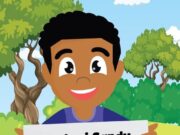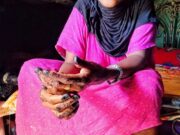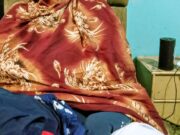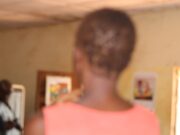I came across this article a few weeks ago in The Guardian and it provided some very good food for thought. I still reflect on it’s content weeks later. It’s an article that I felt I had to share here. An article that all moms should read.
After years of heartache, Jody Day has come to terms with the fact that she won’t be a parent. But she wishes her friends could accept her as she is.
Standing alone in the kitchen of my flat, the truth hit me: I would never have a child, would never be a mother. The noise of the traffic seemed to quieten, as if the sound had been turned down, as the realisation sunk in. I was 44 and in the preceding 15 years had run a successful interior design business, travelled extensively and got a first-class degree in English literature. But motherhood had been my one abiding ambition.
Yet here I was, newly separated from my partner of almost five years, in a sparsely furnished flat in London, with no hope of establishing a new relationship before my biological clock juddered to a halt.
It was as if my dreams lay in tatters amid the suitcases and boxes that surrounded me. I wept huge hiccupping tears. During my 12-year marriage and the promising five-year relationship that followed – with no obvious fertility problems that doctors could identify – I hadn’t envisaged my life turning out this way. But in that moment, I finally accepted that I would never experience a rush of maternal love for a newborn.
The emotion was like bereavement, something I had to go through to be able to move forward with my life. And I’m glad to say that during the past two and a half years, I have worked through my grief and begun to carve out a child-free future for myself. However, what I never bargained for on that dark day in January 2009, was that I would feel increasingly ostracised in the company of women I had known for years. Women who are different from me in just one respect: they are mothers.
Motherhood has become an all-consuming role during the past couple of decades – dominating women’s thoughts and conversations – possibly because the pressure on mothers to get it right is greater than ever. When a man has a child he remains who he always was and becomes a father to boot, but once a woman has a baby she is a mother first, and perhaps something else, a teacher or a lawyer, in addition. Websites such as Mumsnet and Netmums feed this obsession and sense of common identity.
I don’t blame mothers for their single-issue approach to life; I would probably have been the same. However, the result is that women are separating into two tribes: the mothers and the childfree, and we are struggling to find common ground. It is perhaps all the more significant because the number of women who, like me, will never have children, through choice or circumstance, is steadily growing. In the post-second world war years, just 10% of women were childless while the number of women who now reach the menopause without having children has risen to 20%.
So, if a fifth of women are child-free, why do we feel so peripheral, so shut out? Perhaps – despite decades of feminism – it’s because there’s an assumption that the only truly worthwhile job a woman can do is to raise children. Jennifer Leonard, a chartered psychologist and parenting coach, agrees that mothers of young children gravitate towards one another. “Once you have children, your priorities change and your interests alter,” she says. “The result is that mothers tend to seek out reassurance about their parenting from one another. It’s a growing trend, partly because we don’t have the extended families around who used to provide that kind of support. Women who don’t have children are in a minority, so as more of their friends have babies and build mummy networks, they can end up feeling sidelined.”
The division between mothers and me was brought home at a party recently, organised by the mother of one of my goddaughters. Many of the guests were friends I hadn’t seen for a long time. But when I tried to chat, telling them what I was up to, they couldn’t concentrate on what I was saying.
I saw panic in their eyes, as if they didn’t know how to have a conversation that wasn’t about their offspring. OK, their children were there, too, so they were looking out for them at the same time and maybe their inability to concentrate results from years of having to do lots of things at once. However, I couldn’t help but feel I was bothering them by talking about something other than their children. I was happy to listen to tales of potty training, broken nights and teenage hormones. I appreciate what pressures they are under and what a difficult job mothering has become. But when these mums began comparing notes about their youngsters, I felt completely excluded.
They are a very broadminded crowd and I don’t think they consciously left me out. It’s just that our interests are now very different – we no longer have things in common. Eventually, I drifted away and ended up chatting with the men, who were happy to talk about things other than family life. But feeling increasingly lonely, and somehow not quite a fully fledged woman, I left early.
I discovered later that I had been invited as an afterthought, when my ex-husband asked why I wasn’t on the guest list. This was hurtful, but not surprising, as I’ve missed out on invitations before. It’s not, I believe, that my friends don’t want me around any more, simply that their lives as parents, wage-earners and partners leaves them with no time for anything other than family-focused socialising, often arranged at the school gates. They bear me no ill will – I have simply dropped out of their world and their minds.
When I asked my good friend Jo if she viewed me differently to her mummy friends, she admitted that, while happy to meet for dinner, she would leave me off the guest list when hosting parties.
“I don’t invite you because everyone else there is a parent and when parents are together there’s a lot of talk about children,” she said. “Not only might that be dull for you, I’m also concerned that it could be quite painful as I supported you through those years when you were trying to have a baby.”
I don’t resent this state of affairs – if the boot were on the other foot I might feel the same. Funnily enough, my ex-husband, Christian, and I were the first in our group of friends to marry, aged 26, and I imagined we would be one of the first to have a baby. However, one after another of our friends announced the arrival of sons and daughters, while we lived in hope.
Doctors could find no reason for our infertility, despite lots of investigations and we were told to just keep trying. But every month the familiar ache in my belly would herald the arrival of my period, leaving me in floods of tears. Not surprisingly, this hunger for a baby put a huge strain on our marriage. Eventually, aged 38 and hopeful of realising my dreams of a family with someone else, I left Christian.
Foolishly, I now realise, I still felt I had time. I was around 40 when I met David, a lovely man, divorced with a daughter. He was a wonderful father and we hoped there might be more children. Sadly, it never happened, and when David and I split, I realised I would never be a biological mother.
Since accepting that I would always be child-free, I have set up a group called Gateway Women. Our aim is to support, inspire and empower women aged 35 and over who are either still living in hope of becoming mothers or coming to terms with the knowledge that they never will.
Too often, women who are child-free by circumstance are left with the sense of not having a proper life. And many women who are childfree by choice find themselves vilified as heartless, selfish types lacking some vital quality that would make them “real” women.
We women without children need to become a more cohesive bunch if we’re to survive in the Mumsnet era. We want to show how much we have to offer and that we have meaning in our lives – it’s just that this meaning is something other than our offspring. I’m going to use the energy that would have gone into raising my family to speak up for childfree women like me. Our tribe is expanding – and it’s time we had a voice.
As told to Helen Carroll“
Feel free to share your thoughts in the comments section below.
The article was originally published in The Guardian on this link.








































Very interesting read. I have two close friends in my circle that belong to ‘those who don’t have kids’ tribe. One has never wed though would like to meet’that guy’ and marry and the other is married and has been trying for kids for years and has had two miscarriages. We ‘those who have kids’ in my circle have always included them in our kids milestones and I think they have just as much to offer.
@Mama Azizi yes, both tribes have alot to offer to each other because the common denominator is that we are all women, and as women we go through lots of similar things together, so we always learn from each other.
Those of us who have kids are so taken with them, that we cannot imagine that the whole planet doesn’t share our interest…when you experience the joys of motherhood, you won’t stop talking we say! Thanks for sharing this with us, so touching and mind opening. We might not notice that we are shutting away the other tribe because most of the time they’ll pretend to be enjoying the conversations but deep inside they’re burning.
@Kem I’m glad I shared this here because it’s an article that kept gnawing at me days after I had read it. It’s very mind opening, just reading the personal experience of this woman. We just need to learn to be more sensitive to the emotions of all those around us.
Mary Anne, before I had Alexia, everyone around me at the time either had kids or was expecting and all they talked about was kids. My workmates, my mother-in-law, sister-in-law and it drove me crazy. I understood nothing of what they talked about. I think they all looked at me like I did not “get it” or so I thought. SO I totally understand this article. I got included in lots of functions for mothers with children. But since I had my girls I feel that I would not go on about them to someone who has no kids, I would not exclude someone without kids to a function no matter what.
@Wambui I totally understand. I also got included in lots of kid’s functions before I was a mom, so right now that I’m a mom, I see no reason why I would shut out any woman from any kid’s function I had control over just coz they’re not a mom. Thanks for sharing.
Maryanne,I got my kids early when many of friends didnt even have boyfriends and they were always happy to babysit my young ones. Now they got much experience with their children and am glad I invited them into my circle of motherhood and even if they did not have children now, I would do the same coz they too have maternal love.